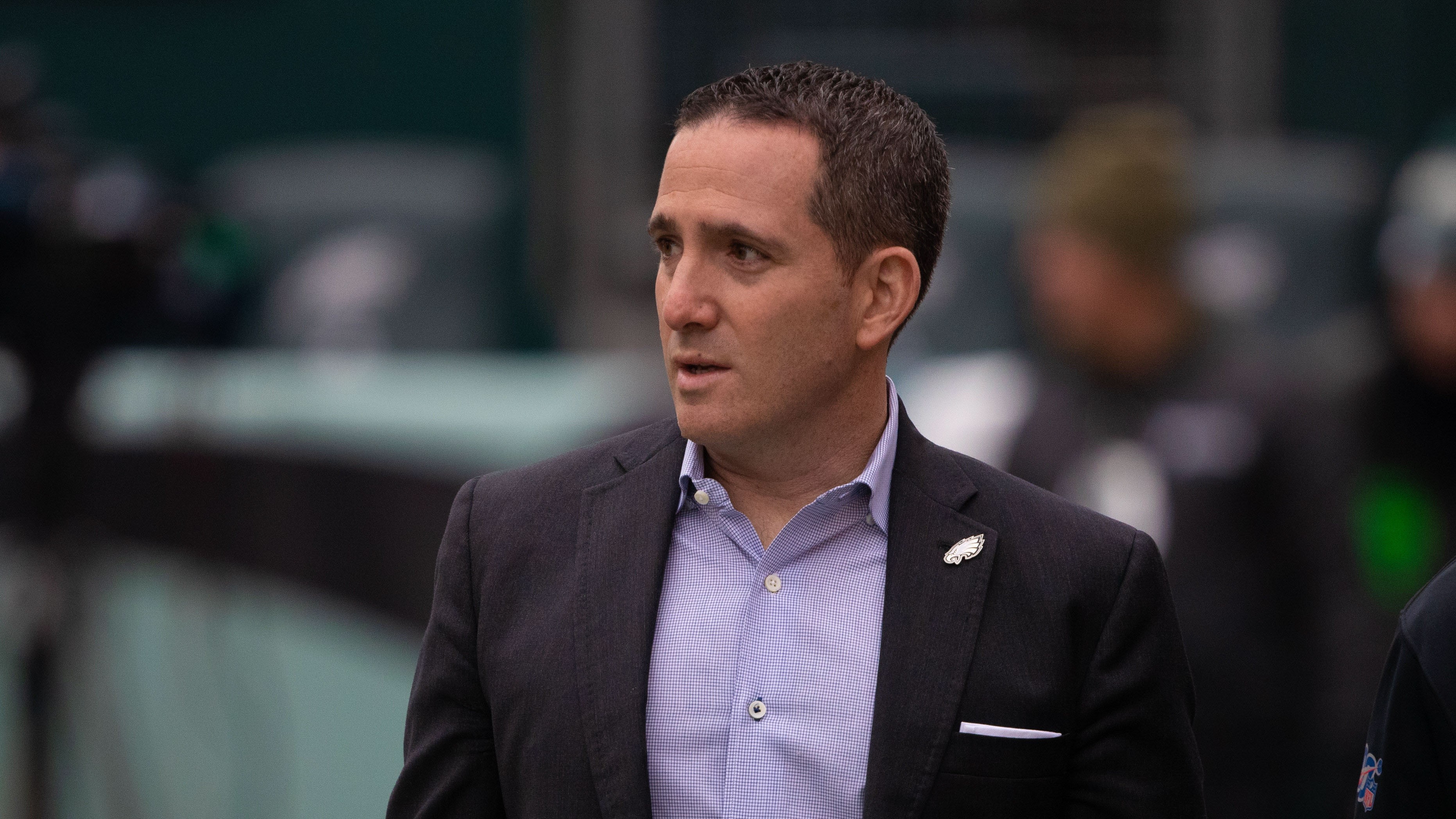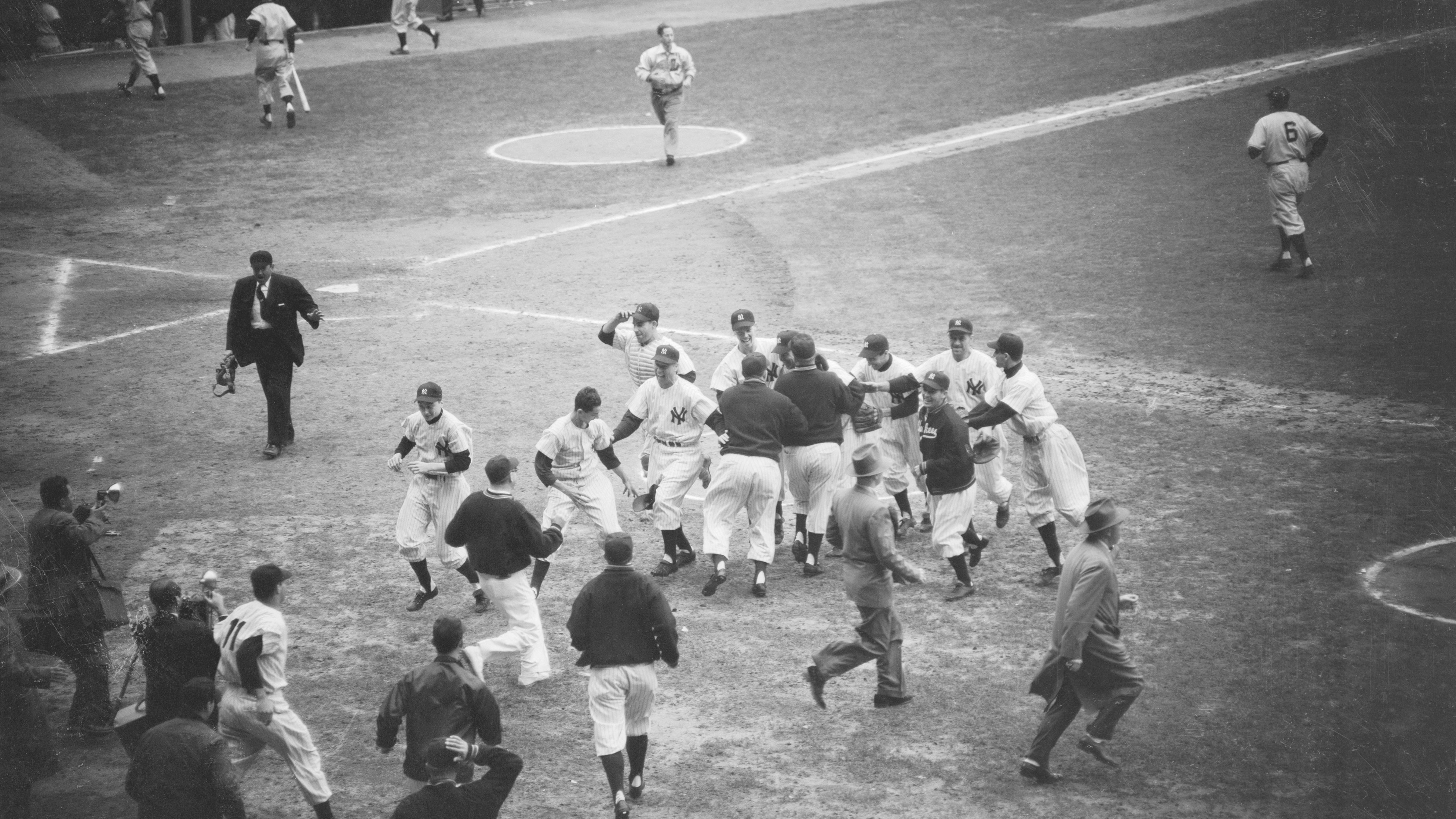
First, the good news from Forbes magazine's annual report on NHL franchise values: The Toronto Maple Leafs continue to have a Scrooge McDuck Money Bin-level of team value, estimated at $448 million (U.S.) by Forbes and having increased by 9 percent from last year's No. 1 ranking. Amazing.
Even better: Forbes believes that the Pittsburgh Penguins -- because of their stars, their excitement and their new arena -- will continue to shoot up the rankings after growing value by 26 percent and placing 18th overall this year ($195 million). Tell that to a Penguins fan nine years ago, and they'd probably spit Primanti Bros. in your face.
The full franchise value rankings are here; and as you can see, it ain't all sunshine.
Earlier this month, Forbes placed the Phoenix Coyotes and the New York Islanders on a list of "The 10 Sports Franchises Most Likely To Move." (Along with the Nashville Predators.) Now we see why: The Islanders are ranked 29th in team value at $154 million and the Coyotes are dead last at just $142 million.
There's a ton of other critical information in this Forbes report; and there's already some significant backlash coming from bloggers whose teams are being painted as financial boondoggles.
First, on the Islanders and Coyotes: Both teams have their struggles at the gate, but their arena status is likely dragging their values to the basement. The Isles desperately need a new building to open up new revenue streams, and the Coyotes' Jobing.com Arena is municipally owned, according to Forbes. But Forbes was brutally honest about the reality of the Coyotes' surroundings:
Sports
In partnership with NBC Sports Philadelphia
The biggest mess is the Phoenix Coyotes, who lost $9.7 million last season. Hardly anyone shows up for their games. The team was recapitalized two years ago when Jerry Moyes, the big money behind the franchise, took over the team and Steven Ellman got the nearby real estate that was supposed to be developed in a huge retail and residential success. Pipe dream.
Moving on, there are two important pieces of information about the NHL's current economic state from the Forbes report:
Hockey teams, on average, are worth 2.4 times revenue, so the more money teams can rake in from selling tickets to games (43% of the league's revenue) without sacrificing attendance, the more valuable they are. The average non-premium ticket cost $49 for an NHL game during the 2007-08 season, 8% more than the previous year. Meanwhile, attendance increased 2%, to 21 million for the NHL's 30 teams. NHL arenas are filled to 93% of capacity.
Forbes is falling into the same trap Gary Bettman lays for everyone that wants to pick apart the League's crack-addict dependence on ticket revenues. Yes, ticket prices are up and, yes, so is League attendance. But the tickets being sold in many of these arenas around the U.S. are not being sold at face value, whether it's same-day discounts or the price-drops for season ticket plans. So increased capacity and attendance is happening because, frequently, teams are reducing ticket prices in struggling markets.
A better measure of a team's viability would be full season-ticket packages or tickets sold for face value; and I'm not even sure teams release that latter bit of info.
Back to Forbes:
The league is certainly a lot healthier today than it was before the 2004-05 owners' lockout. But it is not as healthy as Commissioner Gary Bettman, who claims there is not a team worth less than $200 million, would have you believe. Media reports saying the Edmonton Oilers and Nashville Predators were sold for $200 million and $193 million, respectively, are not accurate. The enterprise values (equity plus net debt) of these deals for the franchise and arena leases were really $170 million and $174 million, respectively.
How embarrassing for the League to have media surrogates lie about franchise values after the NHL shut down a season in order to raise them ...
If there's one rather chilling figure calculated by Forbes for this survey, it's definitely "Operating Income," which is described as "earnings before interest, taxes, depreciation and amortization."
According to Forbes, 18 NHL teams had an Operating Income of less than $2 million; 12 of those 18 actually had a negative Operating Income: The Nashville Predators (minus $1.3 million), Philadelphia Flyers (minus $1.8 million), Boston Bruins (minus $3 million), Atlanta Thrashers (minus $6.1 million), Washington Capitals (minus $6.9 million), Columbus Blue Jackets (minus $7.1 million), St. Louis Blues (minus $8.6 million), New York Islanders (minus $8.8 million), Buffalo Sabres (minus $8.9 million), Florida Panthers (minus $9.4 million), Phoenix Coyotes (minus $9.87 million) and Carolina Hurricanes (minus $11.5 million).

We know about as much about economics as MC Hammer; luckily, Bubba from Canes Country explains the equation for Carolina:
According to Forbes, the club took in revenues of over 75 million, had player expenses of 52 million, and apparently had other expenses totaling over 34 million, which left a loss of 11 million dollars for the year.
Here's how Forbes sees the Canes:
After winning the Stanley Cup in 2006, the Carolina Hurricanes have missed the playoffs for two consecutive years, crimping the team's cash flow. Owner Peter Karmanos has publicly stated the team has not done a good job of promotion, selling tickets and advertising. One result: the team has not meet its league growth targets and has had its proceeds from revenue sharing decrease. Karmanos has recently taken a hands on approach to marketing the team and running its day-to-day business operations. He faces a tough challenge given North Carolina's love for auto racing and college basketball and will likely have to make another Cup run for sponsors and fans to come to the RBC Center in full force.
There's more reaction from Andrew's Stars Page, Habs Inside/Out, The Fabulous Forum (LA Kings), Japers' Rink and some great number-crunching from Mirtle, for whom this must be Christmas morning. (We await analysis from both Ted Leonsis and the great Tom Benjamin on this, too.)
Mirtle breaks this thing down division by division, and offers this coda:
One last thing before I put this to bed: The Canadian-U.S. question. Based on Forbes revenue figures, the Canadian teams generated 21 per cent of total revenues in 2003-04.
Last season, even while all six teams paid into revenue sharing, that figure was 25 per cent. Canadian teams' revenues have increased 44 per cent in those four years; American ones have averaged only 17-per-cent growth.
His point is reinforced by Forbes:
A stronger loonie helps teams north of the border, because they take in revenue in Canadian dollars but pay their players in U.S. currency. Last season the value of the Canadian dollar increased 15% relative to the U.S. dollar. The average team value rose 10% during the past year, to $220 million. Five of the six Canadian teams--Montreal Canadiens, Vancouver Canucks, Ottawa Senators, Calgary Flames and Edmonton Oilers--rose in value more than the league average.
So at what point do we stop talking about Las Vegas and Kansas City, and move the conversation over to Hamilton, Winnipeg, Quebec City and every other Canadian city that wants a team? Not saying we should, mind you; but these numbers are staggering.



